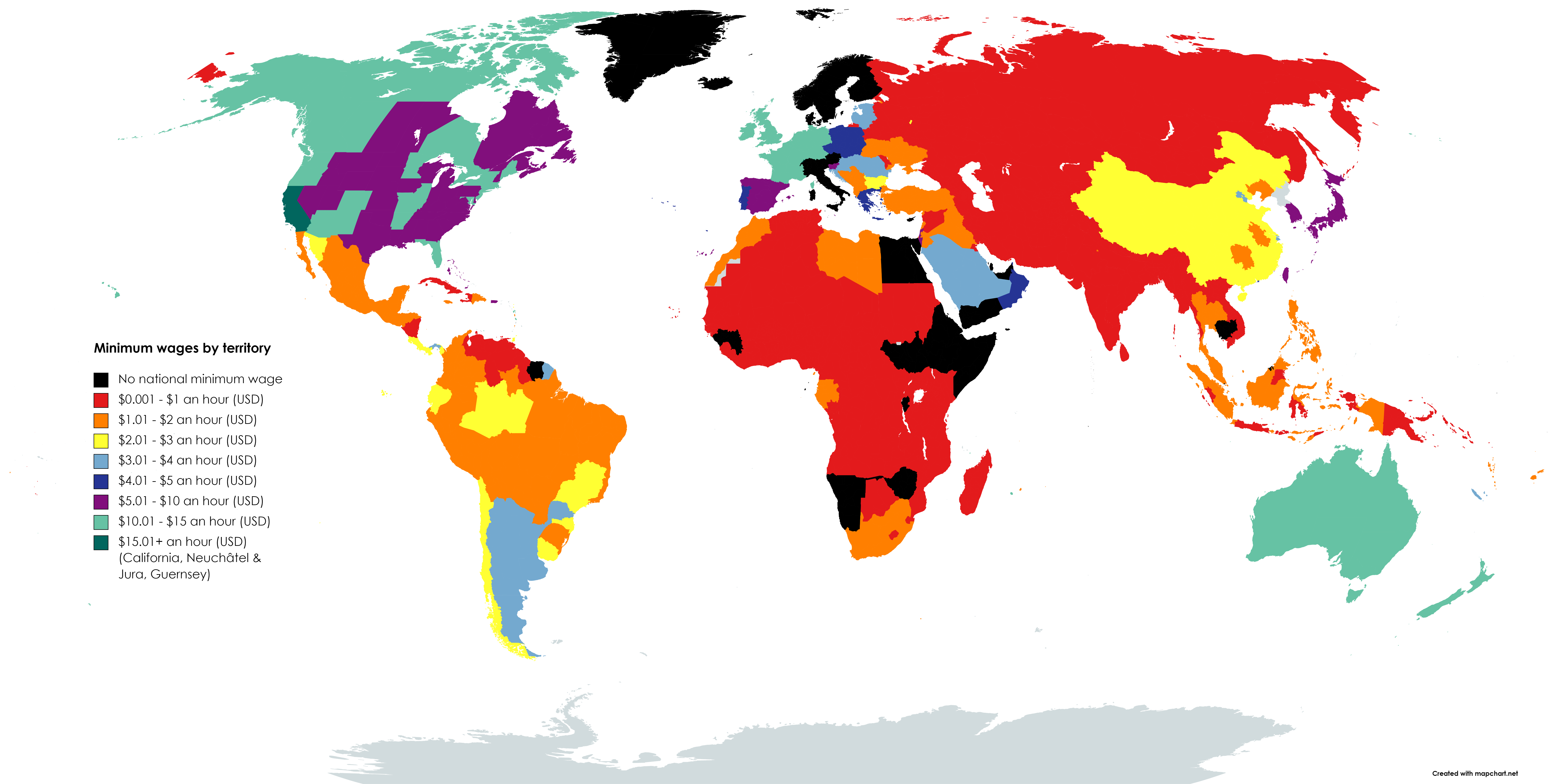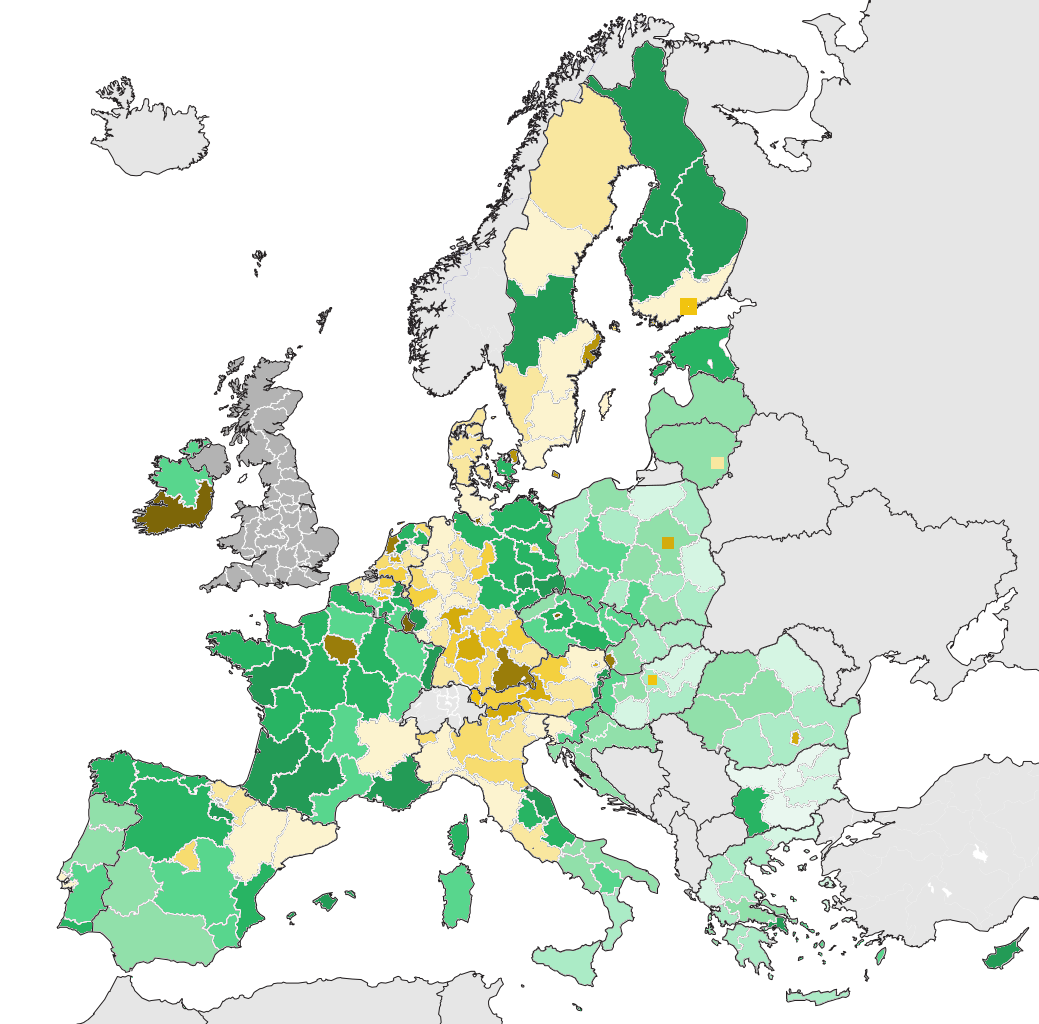|
Minimum Wage In Croatia
Minimum wage in Croatia is regulated by the Minimum Wage Act ( hr, Zakon o minimalnoj plaći) and is defined as the lowest gross monthly wage for a Full-time job, full-time worker, based on a 40-hour work week. For workers who do not work full time, minimum wage is lower, in proportion to their working time, working hours. Additional compensation for overtime work, night work, and work on Sundays and holidays is not included in the minimum wage. Minimum wage is recalculated once a year and is effective throughout the next calendar year. As of 1 January 2024, the minimum gross monthly wage in Croatia is €840, which is equivalent to a net amount of €677. Among 21 EU member states that regulate minimum wage, Croatian minimum wage is fifth lowest. In January 2018, minimum wage was received by 45,245 workers, down from c. 80,000 in 2014. See also * List of minimum wages by country * List of European Union member states by minimum wage References Sources * * Economy ... [...More Info...] [...Related Items...] OR: [Wikipedia] [Google] [Baidu] |
Full-time Job
A full-time job is employment in which workers work a minimum number of hours defined as such by their employer. Overview Full-time employment often comes with benefits that are not typically offered to part-time, temporary, or flexible workers, such as annual leave, sick leave, and health insurance. Part-time jobs are mistakenly thought by some to not be careers. However, legislation exists to stop employers from discriminating against part-time workers so this should not be a factor when making decisions on career advancement. They generally pay more than part-time jobs per hour, and this is similarly discriminatory if the pay decision is based on part-time status as a primary factor. The Fair Labor Standards Act (FLSA) does not define full-time employment or part-time employment. This is a matter generally to be determined by the employer (US Department of Labor). The definition by the employer can vary and is generally published in a company's Employee Handbook. Companies co ... [...More Info...] [...Related Items...] OR: [Wikipedia] [Google] [Baidu] |
Working Time
Working(laboring) time is the period of time that a person spends at paid labor. Unpaid labor such as personal housework or caring for children or pets is not considered part of the working week. Many countries regulate the work week by law, such as stipulating minimum daily rest periods, annual holidays, and a maximum number of working hours per week. Working time may vary from person to person, often depending on economic conditions, location, culture, lifestyle choice, and the profitability of the individual's livelihood. For example, someone who is supporting children and paying a large mortgage might need to work more hours to meet basic costs of living than someone of the same earning power with lower housing costs. In developed countries like the United Kingdom, some workers are part-time because they are unable to find full-time work, but many choose reduced work hours to care for children or other family; some choose it simply to increase leisure time. Standard wor ... [...More Info...] [...Related Items...] OR: [Wikipedia] [Google] [Baidu] |
Overtime
Overtime is the amount of time someone works beyond normal working hours. The term is also used for the pay received for this time. Normal hours may be determined in several ways: *by custom (what is considered healthy or reasonable by society), *by practices of a given trade or profession, *by legislation, *by agreement between employers and workers or their representatives. Most national countries have overtime labour laws designed to dissuade or prevent employers from forcing their employees to work excessively long hours (such as the situation in the textile mills in the 1920s). These laws may take into account other considerations than humanitarian concerns, such as preserving the health of workers so that they may continue to be productive, or increasing the overall level of employment in the economy. One common approach to regulating overtime is to require employers to pay workers at a higher hourly rate for overtime work. Companies may choose to pay workers higher overti ... [...More Info...] [...Related Items...] OR: [Wikipedia] [Google] [Baidu] |
List Of Minimum Wages By Country
This is a list of the official minimum wage rates of the 193 United Nations member states and former members of the United Nations, also including the following territories and states with limited recognition (Northern Cyprus, Kosovo, etc.) and other independent countries. Some countries may have a very complicated minimum wage system; for example, India has more than 1202 minimum wage rates for different types of industries and skill levels. Meanwhile, other countries may have a national rate which often is superseded by state, provincial, cantonal, county and city minimum wage rates. For example, 33 states in the United States have higher minimum wages than the federal rate (plus military rates on federal bases) – on top of this an additional 42 city-level subdivisions having different minimum wage rates and 53 countries. In effect, the United States has over 100 different minimum wages across the nation. This is common in federal nations as Canada, and minimum wage in Chin ... [...More Info...] [...Related Items...] OR: [Wikipedia] [Google] [Baidu] |
List Of European Union Member States By Minimum Wage
The following list provides information relating to the (gross) minimum wages (before tax & social charges) of in the European Union member states. The calculations are based on the assumption of a 40-hour working week and a 52-week year, with the exceptions of France (35 hours), Belgium (38 hours), Ireland (39 hours), and Germany (39.1 hours). Most of EU countries minimum wages are fixed at a monthly rate, but there are some countries where minimum wage is fixed at an hourly rate or a weekly rate. European countries on the gross minimum wage before tax & social charges: Countries marked on the map in green have a minimum wage above €2000, in blue in the range from €1000 to €2000, in orange from €500 to €1000, in red below €500. Countries marked on the map in purple do not have a minimum wage. Minimum wages by EU member states EU member states with no minimum wage * Austria * Denmark * Finland ... [...More Info...] [...Related Items...] OR: [Wikipedia] [Google] [Baidu] |
Eurostat
Eurostat ('European Statistical Office'; DG ESTAT) is a Directorate-General of the European Commission located in the Kirchberg, Luxembourg, Kirchberg quarter of Luxembourg City, Luxembourg. Eurostat's main responsibilities are to provide statistical information to the institutions of the European Union (EU) and to promote the harmonisation of statistical methods across its Member state of the European Union, member states and Enlargement of the European Union, candidates for accession as well as European Free Trade Association, EFTA countries. The organisations in the different countries that cooperate with Eurostat are summarised under the concept of the European Statistical System. Organisation Eurostat operates pursuant tRegulation (EC) No 223/2009 Since the swearing in of the von der Leyen Commission in December 2019, Eurostat is allocated to the portfolio of the European Commissioner for Economic and Financial Affairs, Taxation and Customs, European Commissioner for the Eco ... [...More Info...] [...Related Items...] OR: [Wikipedia] [Google] [Baidu] |
Večernji List
''Večernji list'' (also known as ''Večernjak''; ) is a Croatian daily newspaper published in Zagreb. History and profile ''Večernji list'' was started in Zagreb in 1959. Its ancestor ''Večernji vjesnik'' ("Evening Courier") appeared for the first time on 3 June 1957 in Zagreb on 24 pages but quickly merged with ''Narodni list'' (meaning "People's Paper" in English) to form what is today known as ''Večernji list''. ''Večernji list'' is considered a conservative leaning newspaper. Editions ''Večernji list'' formerly had multiple regional and two foreign editions: * Dalmatia * Istria- Primorje-Lika * Slavonia and Baranja * Podravina and Bilogora * Varaždin and Međimurje * Zagorje * Sisak * Karlovac * Zagreb * Bosnia and Herzegovina * International edition In 2012, all of the Croatian regional editions were merged, so four editions remain: Zagreb, Croatia, Bosnia-Herzegovina and World. Croatia to the World In February 2021, Večernji list, in collaboration with the Aca ... [...More Info...] [...Related Items...] OR: [Wikipedia] [Google] [Baidu] |
Narodne Novine
''Narodne novine'' () is the official gazette (or newspaper of public record) of the Republic of Croatia which publishes laws, regulations, appointments and official decisions and releases them in the public domain. It is published by the eponymous public company. The Narodne novine started as the ''Novine Horvatzke'', first published on January 6, 1835, by Ljudevit Gaj, who created and printed the paper. The first usage of the term "Narodne novine" was in 1843, but the paper changed several names over the years, usually according to the name of the state that Croatia was part of. Gaj sold the original publishing company to the government in 1868. The current incarnation of the company was officially founded in 1952. In 2001 the company became a public company ( hr, dioničko društvo). The ''Narodne novine'' as the official gazette of the Republic of Croatia promulgates acts, laws and other rules and regulations of the Croatian Parliament, bylaws of the Croatian Government ... [...More Info...] [...Related Items...] OR: [Wikipedia] [Google] [Baidu] |
Economy Of Croatia
The economy of Croatia is a high-income service based social market economy with the tertiary sector accounting for 70% of total gross domestic product (GDP). Croatia joined the World Trade Organization in 2000, NATO in 2009 and became a member of the European Union on 1 July 2013. Croatia is about to Join the Eurozone on January 1st 2023 and adopt € as national currency. On the same date Croatia will also join the Schengen Area as 28th member of the organization. Croatia is also negotiating membership of OECD organization, which it hopes to join in coming years. the 2008 Global Financial Crisis badly affected Croatian economy which saw significant downturn in economic growth as well as progress in economic reform which resulted in six years of recession and a cumulative decline in GDP of 12.5%. Croatia formally emerged from the recession in the fourth quarter of 2014, and had continuous GDP growth until 2020. The Croatian economy reached pre crisis levels in 2019, but due ... [...More Info...] [...Related Items...] OR: [Wikipedia] [Google] [Baidu] |
Minimum Wage
A minimum wage is the lowest remuneration that employers can legally pay their employees—the price floor below which employees may not sell their labor. Most countries had introduced minimum wage legislation by the end of the 20th century. Because minimum wages increase the cost of labor, companies often try to avoid minimum wage laws by using gig workers, by moving labor to locations with lower or nonexistent minimum wages, or by automating job functions. The movement for minimum wages was first motivated as a way to stop the exploitation of workers in sweatshops, by employers who were thought to have unfair bargaining power over them. Over time, minimum wages came to be seen as a way to help lower-income families. Modern national laws enforcing compulsory union membership which prescribed minimum wages for their members were first passed in New Zealand in 1894. Although minimum wage laws are now in effect in many jurisdictions, differences of opinion exist about the benefit ... [...More Info...] [...Related Items...] OR: [Wikipedia] [Google] [Baidu] |


.jpg)
